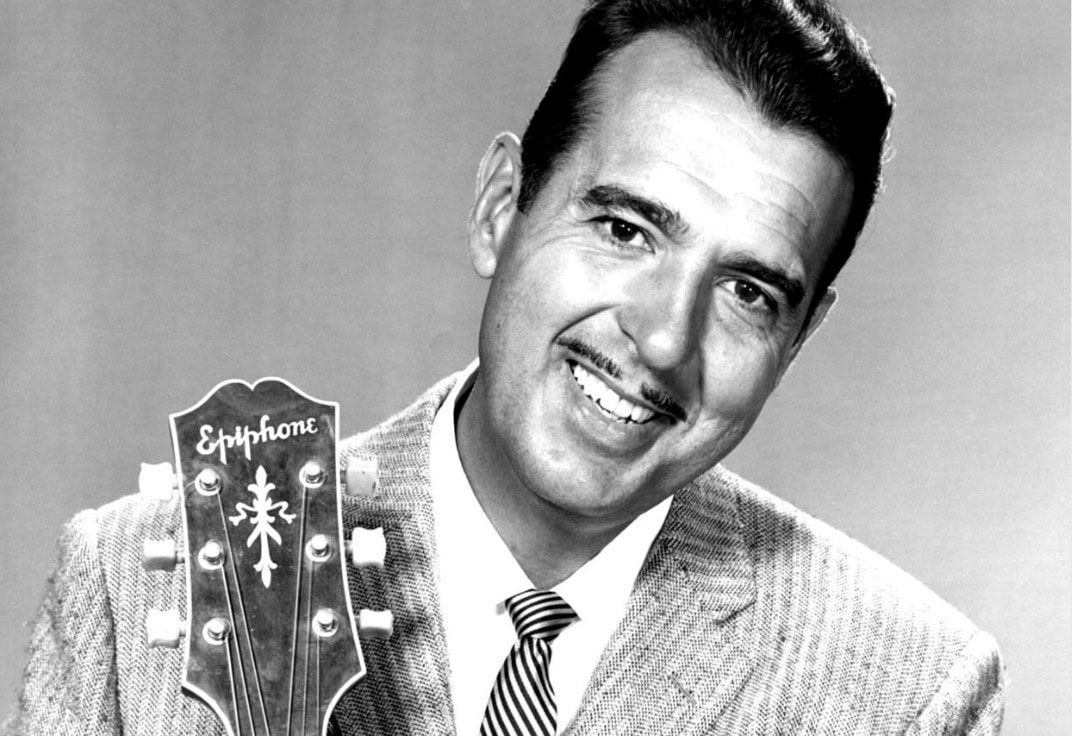
About the song
“Sixteen Tons” by Merle Travis stands as a seminal piece in American folk music, encapsulating the harsh realities of coal mining life in Muhlenberg County, Kentucky. Written in 1946 and first recorded by Travis himself in Hollywood, California, the song swiftly garnered attention for its evocative portrayal of labor conditions and debt bondage prevalent in the coal mining industry.
At its core, “Sixteen Tons” paints a vivid picture of the struggles faced by miners under the truck system—a practice where workers were paid not in cash but in non-transferable credit at company stores. This system left miners perpetually indebted, trapped in a cycle where their wages were docked for housing and basic necessities, leaving them, as the song laments, “another day older and deeper in debt.”
The song’s stark imagery and resonant lyrics struck a chord with audiences, leading to its rapid adoption by other artists across various genres. Notably, Tennessee Ernie Ford’s 1955 rendition became a chart-topping hit, propelling the song to nationwide acclaim and solidifying its place in the American musical canon. Ford’s version, characterized by its deep baritone and bluesy undertones, further amplified the song’s themes of hardship and resilience.
Beyond Ford, “Sixteen Tons” has been reimagined by numerous artists spanning diverse musical styles—from Ewan MacColl’s folk rendition to Tom Jones’s rock-infused interpretation. Its enduring popularity is a testament to its universal themes of labor exploitation and the enduring human spirit against adversity.
In popular culture, the song has permeated literature, television, and film, resonating with its portrayal of blue-collar struggles and social justice. Whether as a backdrop in TV shows like “The Simpsons” or as part of the soundtrack in films such as “Joe Versus the Volcano,” “Sixteen Tons” continues to influence and inspire, reminding audiences of the resilience and determination found in the face of systemic challenges.
Merle Travis’s creation remains a poignant reminder of the hardships endured by generations of miners and laborers, its legacy echoing through decades of musical reinterpretations and cultural references. “Sixteen Tons” stands not just as a song but as a powerful narrative of working-class America, capturing the essence of struggle, survival, and solidarity against all odds.
Video
Lyrics
Some people say a man is made outta mud
A poor man’s made outta muscle and blood
Muscle and blood and skin and bones
A mind that’s a-weak and a back that’s strong
You load 16 tons, what do you get?
Another day older and deeper in debt
St. Peter, don’t you call me ’cause I can’t go
I owe my soul to the company store
I was born one mornin’ when the sun didn’t shine
I picked up my shovel and I walked to the mine
I loaded 16 tons of number nine coal
And the straw boss said, “Well, a-bless my soul”
You load 16 tons, what do you get?
Another day older and deeper in debt
St. Peter, don’t you call me ’cause I can’t go
I owe my soul to the company store
I was born one mornin’, it was drizzlin’ rain
Fightin’ and trouble are my middle name
I was raised in the canebrake by an ol’ mama lion
Can’t no high toned woman make me walk the line
You load 16 tons, what do you get?
Another day older and deeper in debt
St. Peter, don’t you call me ’cause I can’t go
I owe my soul to the company store
If you see me comin’, better step aside
A lotta men didn’t, a lotta men died
One fist of iron, the other of steel
If the right one don’t get you
Then the left one will
You load 16 tons, what do you get?
Another day older and deeper in debt
St. Peter, don’t you call me ’cause I can’t go
I owe my soul to the company store